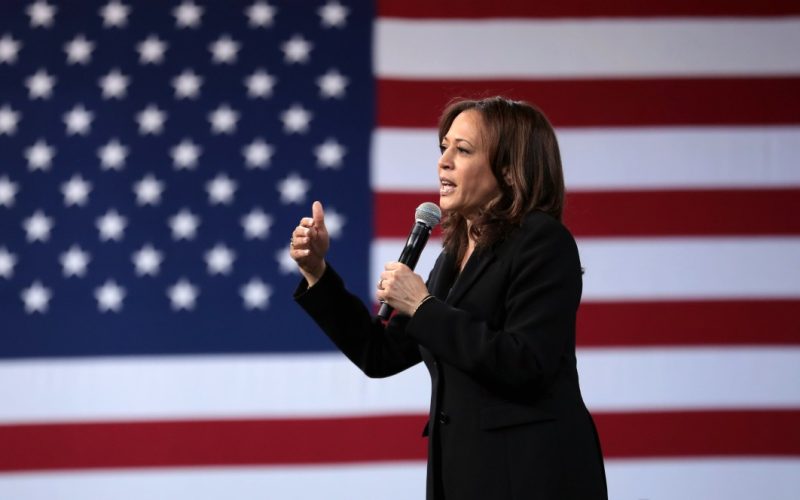Kamala Devi Harris, born October 20, 1964, in Oakland, California, emerged as a transformative figure in American politics through her trailblazing career as San Francisco District Attorney, California Attorney General, U.S. Senator, and 49th Vice President. Her biography reflects the evolving narrative of multicultural leadership in 21st-century America, marked by historic firsts and policy battles that reshaped criminal justice, healthcare, and civil rights landscapes.
Early Life and Multicultural Foundations
Harris’s identity was shaped by her parents’ distinct backgrounds. Her mother, Shyamala Gopalan, a Tamil Indian breast cancer researcher, immigrated to the U.S. in 1958 to study at UC Berkeley. Her father, Donald Harris, a Jamaican-born Stanford economics professor, arrived in 1961. The couple divorced when Harris was seven, leaving Shyamala to raise Kamala and sister Maya in Berkeley’s activist circles before relocating to Montreal in 1976.
Her childhood blended Indian cultural traditions with African American social awareness. Annual trips to Chennai immersed her in South Indian customs, while weekends with her father in Palo Alto exposed her to academic rigor. This duality later informed her policy approach, notably her 2021 immigration reforms balancing border security with pathways to citizenship.
Education: Foundations of Leadership
Harris’s educational path laid the groundwork for her legal and political career. After graduating from Montreal’s Westmount High School in 1981, she spent a year at Vanier College before transferring to Howard University. At this historically Black institution, she majored in economics and political science, joined Alpha Kappa Alpha sorority, and honed debate skills that later defined her Senate interrogations.
She recounted in her memoir The Truths We Hold: “Howard taught me to walk into rooms no one expected me to enter – and to take charge when I got there”. This mindset propelled her to UC Hastings College of Law, where she became president of the Black Law Students Association before earning her J.D. in 1989.
Legal Career: Reformer vs. Prosecutor
Harris’s 27-year legal career began in the Alameda County District Attorney’s Office (1990–1998), handling child assault cases. As San Francisco DA (2004–2011), she launched Back on Track – a nationally replicated program diverting nonviolent drug offenders to education/job training instead of prison. Critics noted her simultaneous defense of wrongful conviction cases and death penalty stance during this period.
As California Attorney General (2011–2017), Harris secured $20 billion for homeowners during the foreclosure crisis and pioneered privacy agreements with Apple/Google. Her 2015 creation of the first state-level environmental justice bureau influenced the Biden administration’s 2022 Climate Justice Act.
Political Ascent: Breaking Barriers
Harris’s 2016 Senate victory made her California’s first Black senator and the Senate’s second Black woman. Her committee performances went viral, particularly the 2017 interrogation of Attorney General Jeff Sessions on Russian election interference. These moments, combined with her advocacy for the DREAM Act and Medicare expansion, positioned her as a 2020 presidential contender.
Though her 2020 primary campaign faltered, Biden’s selection of her as running mate created a historic ticket. Their victory made Harris the first female VP and first Black/Asian American to hold the office. During her term, she cast 33 tie-breaking votes – a Senate record – to pass the $1.9 trillion American Rescue Plan and codify abortion rights post-Roe v. Wade.
Vice Presidency: Crisis and Controversy
Harris’s tenure coincided with unprecedented challenges: COVID-19’s Delta/Omicron waves, the 2023 banking crisis, and the Dobbs abortion decision. She led the administration’s voting rights push, though the Freedom to Vote Act failed due to Republican filibusters. Her 2023 diplomatic missions to Poland and Mexico addressed Ukraine refugee flows and border security tensions.
Critics from both parties scrutinized her handling of immigration and inflation. Progressives wanted faster marijuana legalization, while conservatives opposed her police reform proposals. Despite this, her 2024 presidential campaign after Biden’s withdrawal mobilized record Black and suburban women turnout, though she ultimately lost to Trump/Vance.
Post-2025 Influence and Future Trajectory
Since leaving office, Harris has focused on voting rights through the nonprofit Our Democracy Matters. Her February 2025 NAACP Chairman’s Award recognized her election protection work. Speculation mounts about a 2028 presidential run or 2026 California gubernatorial bid, though she’s currently developing a political memoir with Creative Artists Agency.
Recent controversies include Trump’s March 2025 revocation of her security clearance – a break from post-VP traditions. Legal scholars debate the move’s constitutionality, with Harvard’s Laurence Tribe calling it “a petty but dangerous precedent”.
Personal Life: Family and Faith
Harris married entertainment lawyer Doug Emhoff in 2014, creating America’s first Second Gentleman. Their blended family – including Emhoff’s children Cole and Ella – became a blueprint for modern political households. A practicing Baptist, Harris’s faith informed her criminal justice reforms, notably her 2022 prison education initiative with the National Baptist Convention.
Her 2024 financial disclosure revealed $8 million net worth, primarily from book deals and investments. Despite Secret Service protection, she maintains Oakland ties through regular visits to Everett & Jones BBQ – her favorite spot since DA days.
Legacy and Historical Impact
Historian Doris Kearns Goodwin notes: “Harris redefined the vice presidency from procedural figure to policy architect, particularly in civil rights and tech regulation”. Her impact persists through the 2023 Algorithmic Accountability Act – requiring AI bias audits – and the expanded Child Tax Credit she championed during COVID recovery.
As demographics shift toward majority-minority populations, Harris’s career exemplifies the possibilities and tensions of coalition politics. Whether through future campaigns or advocacy, her biography remains central to understanding America’s ongoing struggle to redefine representation in the digital age.
For further insights into Harris’s policy legacy, explore UC Berkeley’s Public Policy Archive or NAACP’s Voting Rights Initiative.





